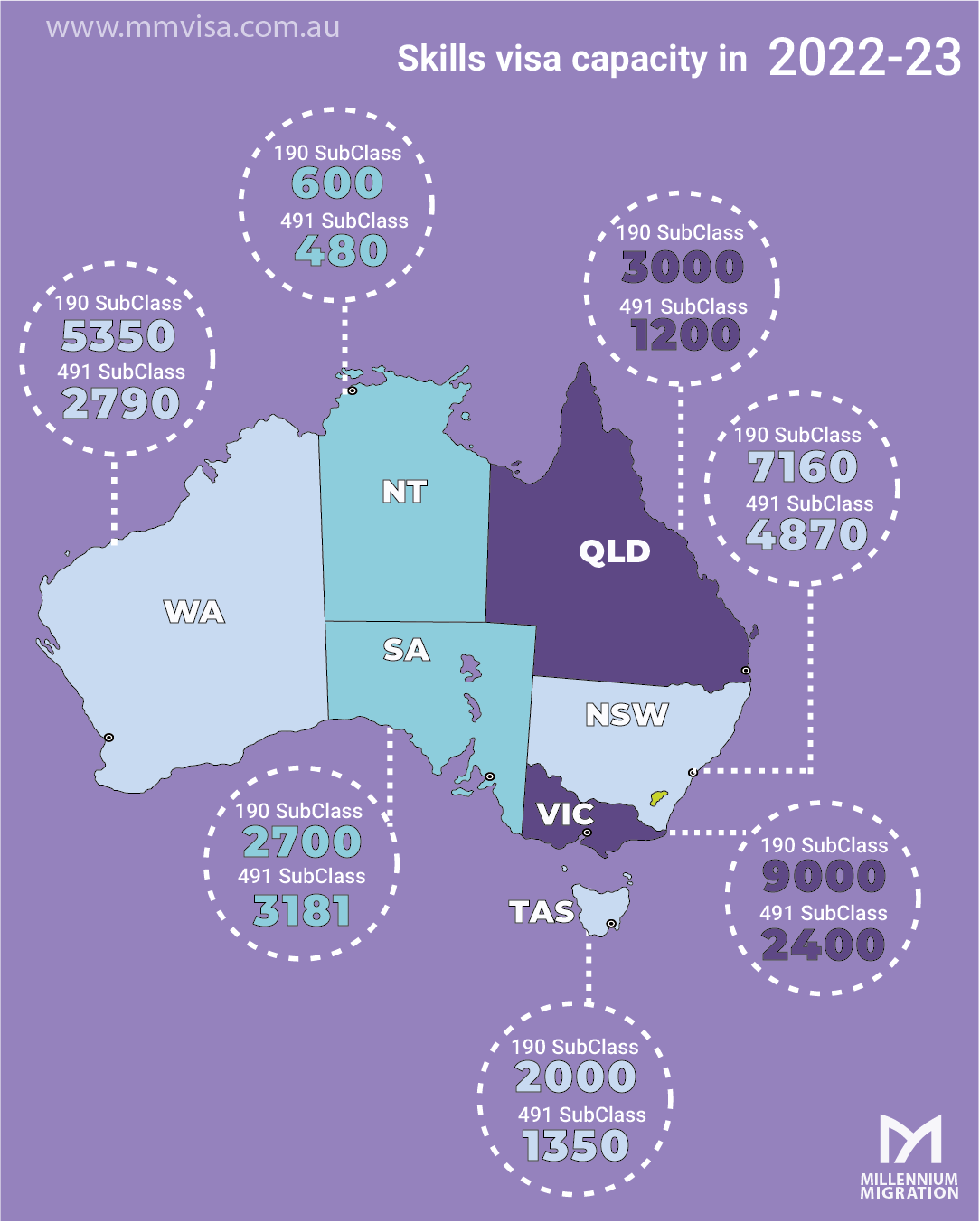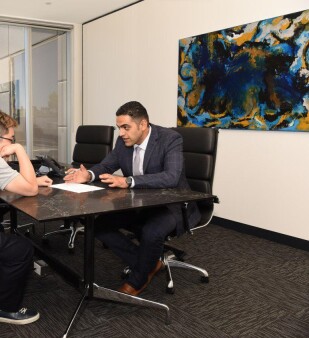
The Skilled Visa to Australia is for skilled individuals or families looking to permanently migrate to Australia, to fill Australia’s skill shortages. Visas within the General Skilled Migration program are points tested and are either independent, State / Territory sponsored or family-sponsored permanent visas.
The size and composition of the Migration Program are set each year alongside the Australian Government’s Budget process.
To inform the planning levels and policy settings of the 2022-23 Migration Program, the Department of Home Affairs (the Department) consulted widely with state and territory governments, representatives of academia, industry, unions, and community organizations between November and December 2021.
Here are the state and Territory nominated skill visa allocations:
Western Australia
WA now has the third largest allocation of state-nominated spots after NSW and Victoria, with 5,350 subclass 190 visas and 2790 regional visas available
Victoria
Victoria has the second highest number of state-nominated visas available with a quota of 11,570 places for 2022/23. It has the highest number of subclass 190 visas (9,000), as well as 2,400 regional visas
NSW
has the largest allocation of state-nominated positions, with more than 12,000 places.
A spokesperson for Investment NSW said it had developed simplified nomination criteria to "improve the client experience and streamline application processing" this year.
The spokesperson said the occupation list was still under development and would be published on the NSW migration website in the coming weeks.
Australian Capital Territory
The ACT's occupation criteria is very broad and include more than 420 jobs on the Commonwealth's skilled list.
It has 800 subclass 190 visas available, another 1,920 regional visas and 10 business visas.
The program in Tasmania expects to open imminently for registrations of interest from people who are currently working in any skilled role related to their skills assessment, before opening more generally in October.
Priority will be given to those working in a critical role and then those on Tasmania's list of more than 250 skilled occupations (up from more than 120 occupations last year) who have also worked in the state for at least two years.
Northern Territory
The Northern Territory is one of the few jurisdictions that won't accept applications from those living overseas. It also asks that successful applicants agree to live and work in the NT for at least three years.
The applicant's occupation must be included as one of the more than 420 jobs on the Commonwealth's skilled list, but the NT also points to a shorter list of more than 200 jobs that are in demand in the territory.
Queensland
The list of eligible occupations in Queensland has been expanded to include 114 occupations in 2022/23. Overseas applicants will also be able to apply for the first time since the emergence of COVID-19.
A spokesman for the Training and Skills Development department said the Queensland Government had requested a higher quota of state-nominated visas than in previous years, to "allow us to nominate more migrants to meet critical skills needs".
This year it will have 3,000 subclass 190 visas, as well as 1,200 regional visas and 235 business visas.
South Australia
SA has already opened applications for its sponsorship program, with more than 500 occupations eligible. It will also select overseas applicants who have lodged an expression of interest on the SkillSelect database.
SA has been allocated 2,700 subclass 190 visas, as well as 3,180 regional, and 70 business visas.


